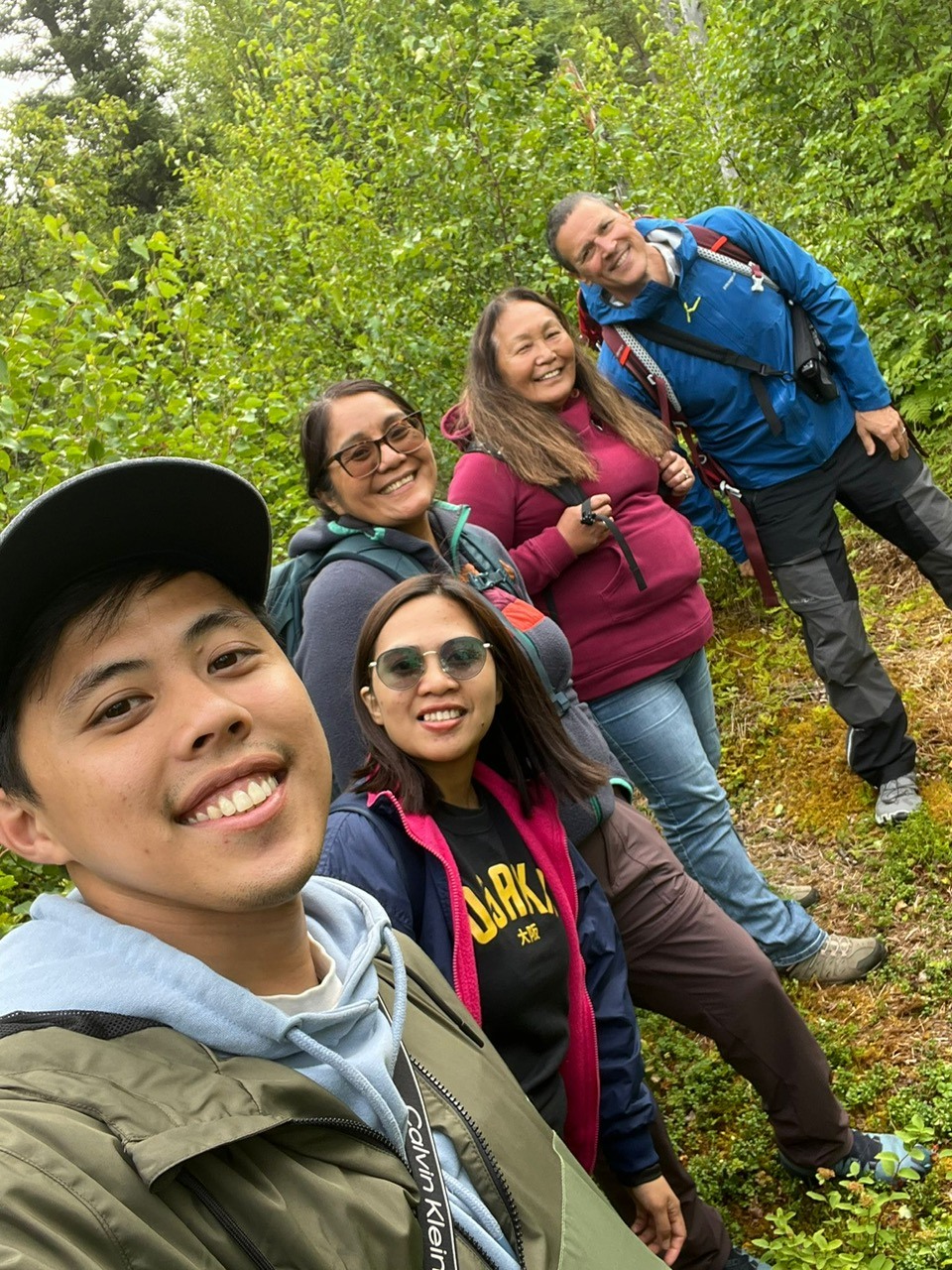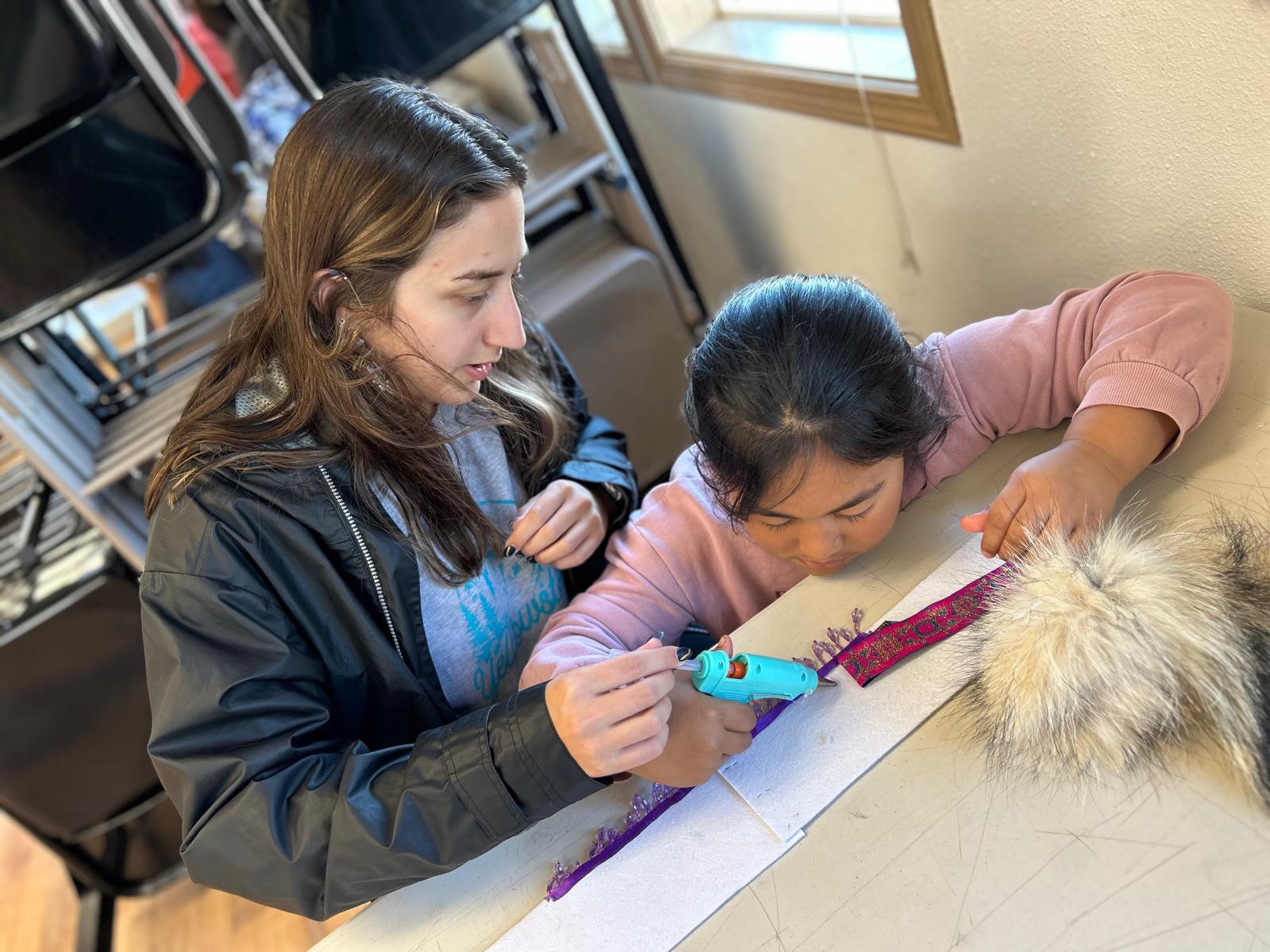
C3 teachers, AKHF President & CEO Kameron Perez-Verdia, and Dena'ina language instructor Marilyn Balluta at Pedro Bay Culture Camp, August 2024. Klarc Luis Tamayo
• August 14, 2024
Every summer, teachers across rural Alaska are given the opportunity to join local culture camps put on by communities, tribal organizations, churches, and school districts. The chance to join camp is invaluable, not only for the cultural knowledge and context the teacher can use to better understand their students and communities, but also because it gives them the opportunity to better understand their own personal values and assumptions, and how those inform their teaching.
Since 2012, the Forum’s Creating Cultural Competence (C3) program has used an intentional Orientation→Culture Camp→Debrief process to help teachers make the most of their culture camp experiences and translate their learnings into updating their classroom practices. Read on to learn more about how we prepare C3 teachers for camp!

C3 teachers, AKHF President & CEO Kameron Perez-Verdia, and Dena'ina language instructor Marilyn Balluta at Pedro Bay Culture Camp, August 2024. Klarc Luis Tamayo
1. Preparation is everything. From the practical (packing lists, flight info, extra bug spray!) to the personal (What are you expecting from this culture camp experience and why? How will you navigate moments of discomfort?) intentional preparation sets the stage for deep learning. Participants also begin exploring the context behind culture camps - how has colonization caused loss of culture and language, and how do we navigate its ongoing effects today? (One tool: The Most Important Thing film.)
2. Partners are core. Partners have ongoing conversations about teachers’ roles and responsibilities at camp and about how to address the extra emotional labor that the teachers’ presence and questions can make for camp managers and Culture Bearers during camp. This summer, partners from the Bristol Bay Foundation have shared directly with the teachers about who the camp is for, how the teachers can show up well at camp, and about some of the work that goes into putting a culture camp together.

C3 teacher helps student at Pedro Bay Culture Camp with a sewing project.
3. Debrief during camp. During camp, teachers respond to prompts from their course instructor, Dr. Panigkaq Agatha John-Shields, in their program journals. They also meet briefly each morning and evening with a C3 staff member, who checks in about what they are learning, what they are struggling with, what personal assumptions are being challenged, and how they are generally doing.
4. Follow up thoughtfully. After camp, C3 teachers begin their 3-credit, 600-level UAA course with Dr. John-Shields, which takes their camp experiences as a jumping-off point for teachers to dig into learning what their communities want for their students, how to adapt their practices based on their experiences at camp, and how to “take off their teacher hats” to build the kinds of relationships that will support and sustain them. Teachers also meet in person in the fall and the spring to focus on the practices, tools and relationships that can help them make their classrooms places where students and community members feel welcome, valued and seen.
This school year, the C3 program will operate in the four Bristol Bay school districts and the Northwest Arctic Borough School District. Stay tuned for guest blog posts from partners and personal camp debriefs next month!
The Alaska Humanities Forum is a non-profit, non-partisan organization that designs and facilitates experiences to bridge distance and difference – programming that shares and preserves the stories of people and places across our vast state, and explores what it means to be Alaskan.
November 13, 2025 • MoHagani Magnetek & Polly Carr
November 12, 2025 • Becky Strub
November 10, 2025 • Jim LaBelle, Sr. & Amanda Dale